How Tariffs are Impacting Fiber Arts in the US
In the United States, the president works with Congress to create US tariff policy. A tariff is a tax imposed by a government on goods and products imported from another country. The round of tariffs that was implemented most recently is having an impact on the spinning community, and you may not even realize it yet.
As of the publishing of this article, in the United States, the US president recently escalated a trade war with China, raising tariffs to 145 percent, then agreed to lower them to 10 percent, though tariffs on most Chinese goods are still over 30 percent due to existing duties. The president has also threatened to impose 50 percent tariffs on the EU, though that action is on pause. Tariffs for Canada and Mexico have been set at 25 percent on most goods. And there is a minimum tariff of 10 percent on most other countries. That means if you import spindles from Canada for $10 each, the tariff raises the price to $12.50.
Who pays this import tax? Well, the person or company that imports the item pays the tax. However, it doesn’t end there. That importer increases the price they sell the item for to help them maintain their profit margin. The dyer or spinner or yarn store that buys the wholesale products from the importer is then forced to increase their prices so they can make a living off their dyeing or spinning or reselling. Then you, the customer, spend more of your money to get your dyed or carded fiber or that fancy spinning wheel. So ultimately, tariffs come directly out of our pockets.
Ashford operates out of New Zealand. Louët wheels are manufactured in the Netherlands. A majority of our silk products come from China.
Why don’t we just buy US products, then? Many of our US producers, like Clemes and Clemes, have already taken steps to make as much of their product as possible in the United States. As a result, their prices have managed to stay relatively stable.
Very little of what we use is entirely made in the US, though. Wheels and carders and other tools use imported parts, even if they are constructed here. We simply don’t have the infrastructure to produce all of our fiber and tool parts here. We are lucky to have companies that are working to build the infrastructure, but that doesn’t happen overnight and it isn’t necessarily going to make the product cheaper for consumers. Our spinning community primarily operates as a recreational industry. Hobby and recreation are often hit the hardest when prices systematically increase.
What can you do?
Buy fiber locally. While silk is sexy, there are a ton of wonderful, underappreciated local wools and plant fibers. There is a revival in commercial flax here in the United States. Small farms across the country produce rare and interesting breeds of sheep.
Buying new tools is trickier, but luckily, our biggest imported tool names tend to be in places that are impacted less by the tariffs. We also have an amazing number of independent woodworkers here in the United States that produce and repair fiber tools, if you know where to look and who to ask.
And always, make use of your stash! Every fiber artist has one (or is in the process of building one). I can’t count the number of times I’ve complained that I have too much fiber. This may be a good impetus to use some of it!

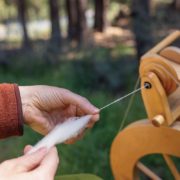
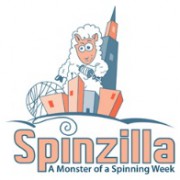
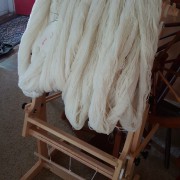
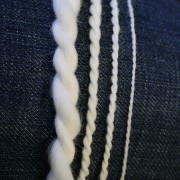
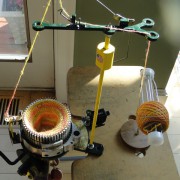



Leave a Reply
Want to join the discussion?Feel free to contribute!